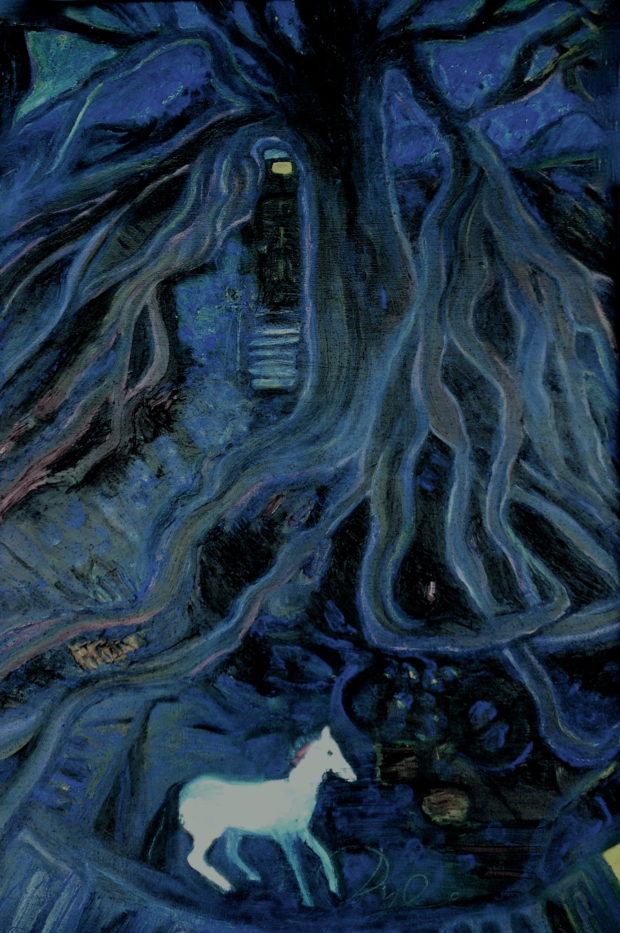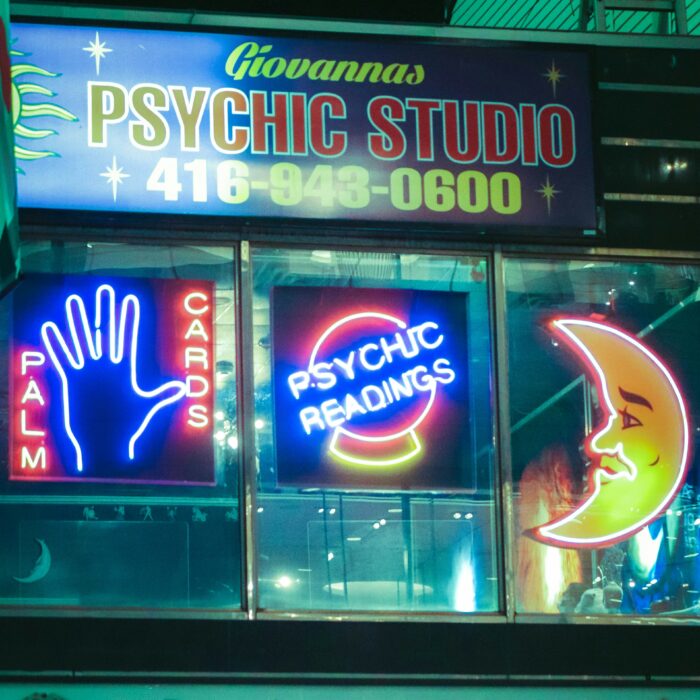You have no items in your cart. Want to get some nice things?
Go shopping
A writing group is best expressed by a tall Chinese chair in my house, which once had an old typewriter sitting at its top. It said hello to writers who came to my house, with all the letters of its alphabet. But for months now it has been back in its lockable old box in the basement, and there is a Tennessee Walker’s saddle in its place instead.
What, a friend who came to visit me asked, is a writing group?
It’s just like a barn, I said. Horses.
(Writing is all about explaining.)
Why bother with the sport of kings? he said.
Why buy a horse? I said. They’re expensive.
Good question, he said. Why buy a horse?
It takes you places, I said.
It takes you places, he said.
It shouldn’t be more than a dozen people, I said. At the barn. The writers. And of the dozen there should be some just watching, because writers love people watching them. They love praise. They – occasionally – love your ideas about why you didn’t make the jump or you did, they might not mind telling you how, in their opinion, it went wrong. When it’s really good they don’t need to tell you how you made the jump, only how it made them feel; and they don’t dare ask you how you made it; that’s a dimly apprehendable magic, which maybe the best magic is.
Why ride horses? he said.
I know, I said. Why not listen to books on tape. Etcetera. Because, I’ll tell you, they read in overly hammy voices. Trust me. In writing group they won’t read in overly hammy voices. In fact, you’ll yearn for drama.
You will?
Yes, you will, I said. You’ll also yearn for people who don’t turn writing group into a group for sufferers. One plain cup of tea in front of everyone. Or gluttons: writers should once in while be as happy with popcorn as Gouda and pastries and wine. Someone who rides a horse doesn’t care what the food is after the show. They just want to know if they passed through the time-space-continuum.
Time-space-continuum, he said. Michael J. Fox.
Where you leave the madding crowd behind, where you become the invisible man or woman who sees all as you go over the jump, I said.
You keep talking about the jump, he said.
From the jump, soaring over, for a moment you’re the sun. Or water over the dam. You see all the things you don’t want writing group to be. You don’t want it to be a church group, people pretending to be saints, wishing people would get sick so they can be the well one going to visit them in hospital with a high-handled basket stuffed with treats. Even if there are books in it, that’s punishment: that’s not a writers’ group. That’s a terribly lonely people group assuming everyone else is as lonely as them. That is not good for writers’ morale, I said.
What do you need for morale? he said.
Horses that are stronger and wiser and much more magical than us, I said. Horses, maybe, are ideas, history, possibility. Heartbeat, maybe.
What else do you see from the jump? he said.
How lonely birth and death are, and marriage, I said. Those things. They’re surrounded by loneliness. Writers remind you you are more than those, and only those. Flannery O’Connor said a short story is the only thing that could have been written to describe what you’re writing about. Hemingway said you’re a professional explainer. Updike said everything can be a work of art; the difference is the amount of care. You I suppose are the carer, the embroiderer, the cleaner.
But they’re not horses, he said.
No, I said, they’re writers. Horses have a math and a heartbeat that’s different than writers; real writers match up with the horses’ rhythm. With bit and stirrups and reins and punctuation they can only hope to change horses’ rhythm a little bit. They know they’re going to live longer than horses, yet perhaps that’s an illusion, because all horses are one, one herd living, never dying, somehow. We people I like to believe are one by one.
What else don’t you want a writers’ group to be? he said.
Flashy, I said. Too grocery-store talkative. People bragging about their damnable jobs, their photographs of children or grandchildren, or, worst, people announcing their new Ph.D. when they join the group, without any sort of levity. They can mention those things elsewhere, I am sure. And if they’re an exceptional writer, they could mention, but still with levity, that Ph.D. I still remember a science-fiction writer who sat with his arms behind his head – he was a rigorous bastard, reminding us like a good Navy ship captain this is a special place, almost a garden place or dream place, though a working place, not the idiot’s real world, this ship you’re on. Or, perhaps, this is the realest, but royalist, world. We could, and should, tip our heads back, and listen, listen, ride together.
What else? he said. If I was starting one back in Massachusetts.
Massachusetts? Oh hear, Walden Pond. Maybe avoid people who say the word genre, I said. Because it means nothing. Except, maybe, you haven’t been published yet. Say novels. Say stories. Say poems.
He laughed. Genre’s a pretty word, he said. What do you want to write a book about?
The perfect horse, I said. The one-in-a-thousand horse who knows it only has so long to live. A horse with a sense of humor and a sense of cunning and a knowledge of when to break the rules.
How does a horse break the rules? he said.
It doesn’t go where you told it to, and you end up glad, or mad, I said.
What else?
How good it feels to leave the stable and how good it feels to come back to the stable. How you forget where you were because it was so wonderful. How you talk to the other writers just with a few words and they know what you mean, and they’re quiet when you walk into the barn with your horse following you, and they watch you, and they know you don’t want to talk while you take the saddle off and hang up the bridle and you brush him or her with the curry brush and you let them drink water. That’s the silence after you read. Then someone says hey, saw you coming over the ridge, you looked like an Apache: I saw you there.
Not cultural appropriation? he said.
If you’re not appropriating, you’re missing something, like telepathy, I said.
Hmm, he said. So you can be anybody while you’re out on your ride, he said.
You never know how long, I said. It fades in and out on you like a flower blooming and laughing at you.
Can you mix horses and flowers?
They put a big ring of them around their neck when they win the Derby, I said.
Yes, he said. What else is bad if I start it in Massachusetts? he said.
That you’ve lived there too long, maybe, I said.
Oh, he said.
If you’ve lived there a long time this needs to be like a horse that can go straight up a hill on a cold moonlit night as if he knows there’s food on the other side or a deep quiet lake to swim in, I said. It can’t, your writing group, be too slow and pondering; that’s for the lake. We could all drown with you in your frog pond with the slow sleepy crickets. Your writing group, or your literary journal, needs to be the horse going straight up the hill, knowing something is at the top, or just beyond.
Or you can move, I said. You can figure out how to install yourself in London where the sky surrounds you, clouds and fog so low, so reassuring, and down the street there are people speaking that British music, everywhere you go.
That would be difficult, he said. I don’t have enough money.
Neither do I, I said, but the magic horse can take you there. He won’t charge you. He’ll just watch you now and then, big muddy-lake eyes. He’s very tired. He never gets to sleep much. He never gets to lie down unless he’s about to die. That’s when a horse lies down.
Is that the magic of the horse? That they’re waiting to lie down?
Yes, after they’ve taken you somewhere, they’re grateful they have taken you there, and you’re trying to interpret it, busy chimp you are, trying to share it, trying to make everyone ride with you to the strange places that alternately frighten or charm you.
Does everybody take home copies? he said.
They shouldn’t, except the author, I said. You prove you want to hear it by staying, and you hand your copy back to the author with your comments, which you are always careful to make yearning in nature. You say what you wish had happened, what you still wanted to hear. Or you say don’t change a word, which is the finest compliment.
That yearning thing’s pretty vague, he said.
So’s yearning, I said. You can’t change a writer, I said. They have to change themselves. Ones who have had long periods of loneliness but are now happy are the best. They write from the warm room looking out at the cold. The ridiculous planets become their friends. For example, I remember, dimly, the non-magic of job performance reviews. Think what a writer or a horse would think of a performance review!
Well, they wouldn’t, he said. The horses.
Why not, they’d get a good snort, I said. Think what they’d write if they could write.
You could be writing now, instead of talking to me, he said.
Oh, no, today’s awaiting the charging horse of rejections, I said. Anyway there was never a performance review through which I did not continually think the words I want to quit. That’s a writer. Basically, in some ways, completely unemployable—
Could you share something like that with your writers’ group? he said.
I did, and they didn’t like it. The stated tone is cheering each other on. But I draw the line at cheering on baskets for the sick and pictures of grandchildren and hearing the youngsters insist they’re grownups now and how their employees are confiding in them during the magic of the performance reviews they are giving. I understand all are not as lucky as me, able to write and paint and review and not have to work at a miserable job. But, if you must, put all those miseries of everyday life and relatives into the writing academy. But much, much more. The confidences you aren’t told by others; the photographs of the no longer-living, the blind sorrow of the lost-before-birth; the lost last dreams of the dying – what all these would be if they walked slow and deliberate and sure as a horse into the blazing light. The telepathic dark horse race track. Is this becoming too intense?
Yes, he said, and looked worried.
And, I said, if they are religious they need to put that in a bucket near the door.
Okay, he said. It sounds a little cruel.
If they start talking religion – with the exception of transcendentalism, pantheism, monarchism, science – those are writers’ religions – ask them if they really do think you’re dense, and hope they laugh. If anyone says what matters is how you care about people while they’re alive tell them you’ve heard all the tritenesses and homilies. Tell them you’ve heard it all, but just taking care of the living’s easy. All of you are caring about the dead as much as about the living, is sometimes the essential job of the writer. A historian who works without history books.
Why bother? he said.
Well, it’s the neglected and lost, I said.
No way to tell it, he said.
Then you’re not listening, neither is your horse, I said. You’re riding deaf-mute.
Oh, he said. I do have a fancy pair of boots.
Your horse doesn’t care, I said. The test of you is how nimbly and quickly you can get on a horse without a saddle and without a bridle there, and curl your feet to his or her sides. Though it has been a long time since I have done so.
You can’t do that, now, I’ll bet, at your age, he said. Ride bareback.
Do it every time I write, I said. In my head. And then I ride, or write, to a high place where the writing rites happen, where there’s a fire that’s kept going, writer to writer. There we plan our routes. Our escapes. Our races.
From where, he said. The high ridge?
Yes, as simple as that, I said. And you find your listeners. Surprise – it’s not the other writers, the other people, who are there by the fire, who are the true listeners. It’s the horses, the trees, the mountains. I highly recommend a literary journal or a writers’ group is by mountains. I can’t exactly say why.
Hmm, he said. We have a mountain maybe fifty miles away.
That’s kind of good, but not very inspiring. A hill? Are any of you psychologists?
No, he said.
If one joins, don’t let him invite his students, I said.
His clients, he said. Of course. Problems times two.
For the therapist’s sake as much as the patient’s. The patient’s making up stuff, call it myth-lore making, whatever you like; but then to heap on more heaps of myth-making will gum up any brain. Did you know the brain is white, gray, black, and red?
Sounds a little like the colors of horses, he said.
If you count chestnut as red, I said. Those colors make me think of wet newspaper. Remember, never in your writing group or journal the word genre, it’s like bragging too many times how much you’re willing to pay a ferrier. By the way – each piece of writing is shoeing a horse again, but not with real shoes, with dim magic. Dim math, dim sum.
A lot of writing is just plodding, he said.
But that is the horse and you thinking things over, I said. You never have soaring till miles and miles of plodding and considering all of life’s problems, unfairnesses. And it’s a hello room. Where you meet people you persuaded yourself – you didn’t need or you’ll forget. You know it’s a fine writing group or literary journal when without asking you all polish your horses, with fine brushes and neatsfoot oil, comb out their manes and their tails, clip manes and tails if they’re ratty, all one tribe moving out onto the trail, leaving behind jobs, children, religion, grandchildren, therapists – what you must leave behind, to move together where you’re going, to the place up high. The fire place. Nature doesn’t give us performance reviews. It gives us a quick nod. As Mister Rogers said, we’re perfect just the way we are. We’re all we can be. That’s what nature says.
Do the horses understand fire? he said.
No, they don’t, and that’s why we take them there, to remind them we’re the god of fire, we can start the fire, we can put it out, and we come to be quiet beside it. We’re not afraid of it. Inspires their weary awe.
All that doesn’t mean anything, he said. Gobbledygook, then.
Don’t name your journal that, I said. Or your brain. Look for the good writer, the one who wants to turn himself or herself inside out, is willing, even, to change places with a shadow for several years. The world is fairly oblivious. No one will ever notice, probably, you were a bit of a shadow. The Indians could swing themselves upside-down under the horse’s belly, then right themselves while the horse was full-run.
Doesn’t a horse know it will die? he asked me.
Yes, I said. If they’re by a fire. They all have a glimmer of that by the fire.
Oh, he said, I like that. A Glimmer of That by the Far. Oops – A Glimmer of That by the Fire. Maybe a ferrier is a farrier?
Oh, good, I said. The title is very important. As your own name is, the title is destiny.
Yes, he said. And could that be a racehorse name? The Title is Destiny?
Yes, I said, and I nodded. Don’t forget your boots.
Of course, he said. I’m wearing them.
He was gone. Off to Massachusetts, to prove to Louisa May Alcott and all the vanished, the transcendentalists, among the trees near a mountain or a hill, it could be done.

About Rebecca Pyle
Once upon a time, while living and working in London, Rebecca Pyle shared a first prize purse in The National Poetry Competition with the wonderful Irish poet and overall winner Medbh McGuckian. Recently Rebecca's essays, fiction, poetry, and art reviews are appearing in art/lit journals such as The National Poetry Review, The Honest Ulsterman, Guesthouse, The Chattahoochee Review, The Penn Review, Belle Ombre, Cobalt Review, Gargoyle magazine, and Terrain.org. Rebecca, American, is an artist, too, her artwork appearing in New England Review, Grist, december, Belle Ombre, JuxtaProse, and in numerous others. (See rebeccapyleartist.com.)




A very beautiful picture and a cool story, if you are interested in literature, you will find a lot of interesting material on various topics on my website: articles, essays, educational tools. I hope you will be interested in.